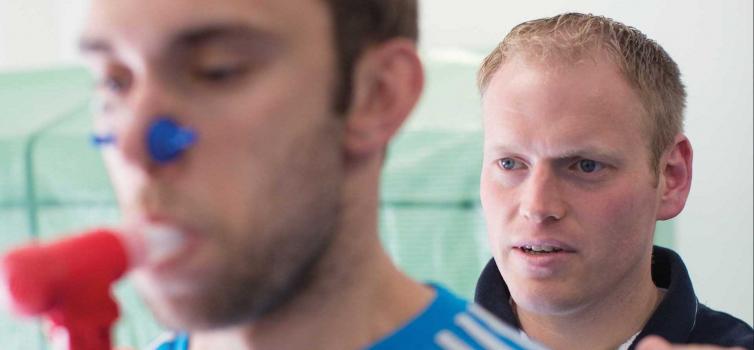Call for asthma screening after 28% of players found to have condition

Dr John Dickinson tested 97 professional footballers
Written by Simon Austin — December 8, 2017
CLUBS have been urged to start screening their players for asthma after a study found 27.8% of its sample had the condition.
Researchers from the University of Kent, led by Dr John Dickinson, tested 97 players from four English clubs: one ‘regular Champions League team', a ‘mid-table Premier League side,’ and sides from the Championship and League One.
They found that 27 had exercise-induced asthma. Of these, 10 had no idea they had the condition, while the other 17 were aware they did but were not necessarily using inhalers.
None of the clubs tested has screened for asthma before or since the study by the University researchers during the 2015 and 2016 pre-seasons.
Dickinson told TGG: “This is something the clubs had never done before. A medic would typically ask a player if they had had breathing problems. But unless there was a history of asthma with that player, they would not look into it any further.
"Our research suggests a change of practice is needed. Clubs can’t rely on players reporting symptoms, because they are not always that obvious and sometimes they are written off as poor fitness.
"Players really need to be screened for this once every four or five years and then appropriate action taken if they do have asthma.”
WHY IS ASTHMA A PROBLEM FOR PLAYERS?
The first part of the answer may seem fairly obvious.
“Players can’t train as hard and are likely to struggle in recovery if they have asthma,” Dickinson explains.
“You would treat them as you would a standard asthmatic, focussing on prevention, so they’re not always rushing to the side of the pitch to use their blue inhaler. Once treated, you would see an improvement in aerobic performance.“
The second part of the answer is perhaps not so obvious.
“If not identified, then you are putting a player’s airway health at risk,” Dickinson adds. “They are more likely to pick up coughs and colds, because asthma is an inflammation issue, which makes them more susceptible.”
When you consider how much even one day lost to injury or illness costs a club in terms of lost wages, this is clearly worth thinking about.
HOW WAS THE SCREENING CARRIED OUT?
Screening was carried out during one day of pre-season at each of the four clubs. Up to 30 players were screened in any one day.
“First we measured baseline lung function,” Dickinson explains. “Then we simulated the breathing rates during an intense match, equivalent to 85% of maximum breathing rate for six minutes.
“After that simulation, we measured at intervals for 15 minutes. If the player’s lung function dropped off 10% or more within 15 minutes, then it suggests there is an asthma issue. For some players it dropped off as much as 50%.”
Exercise-induced asthma is more prevalent among first-team than Academy players, according to Dickinson.
“We have done similar screening in Academies and didn’t find the same prevalence of asthma as with the elite guys,” he says.
“This is possibly because of the time the first-team guys have been playing elite sport, meaning the asthma has developed over time because they are exposing their airways to dry air. This can damage their airway lining and develop an asthmatic response.”
HOW MUCH DOES TESTING COST?
The testing for the study was free, although a test carried out by the University of Kent will typically cost £216. This drops to £150 per player if groups of 10 or more are tested. On Harley Street is £425, the cost is typically £425.
"None of the teams wanted to continue the testing after the study,” Dickinson says.




-1.png)





